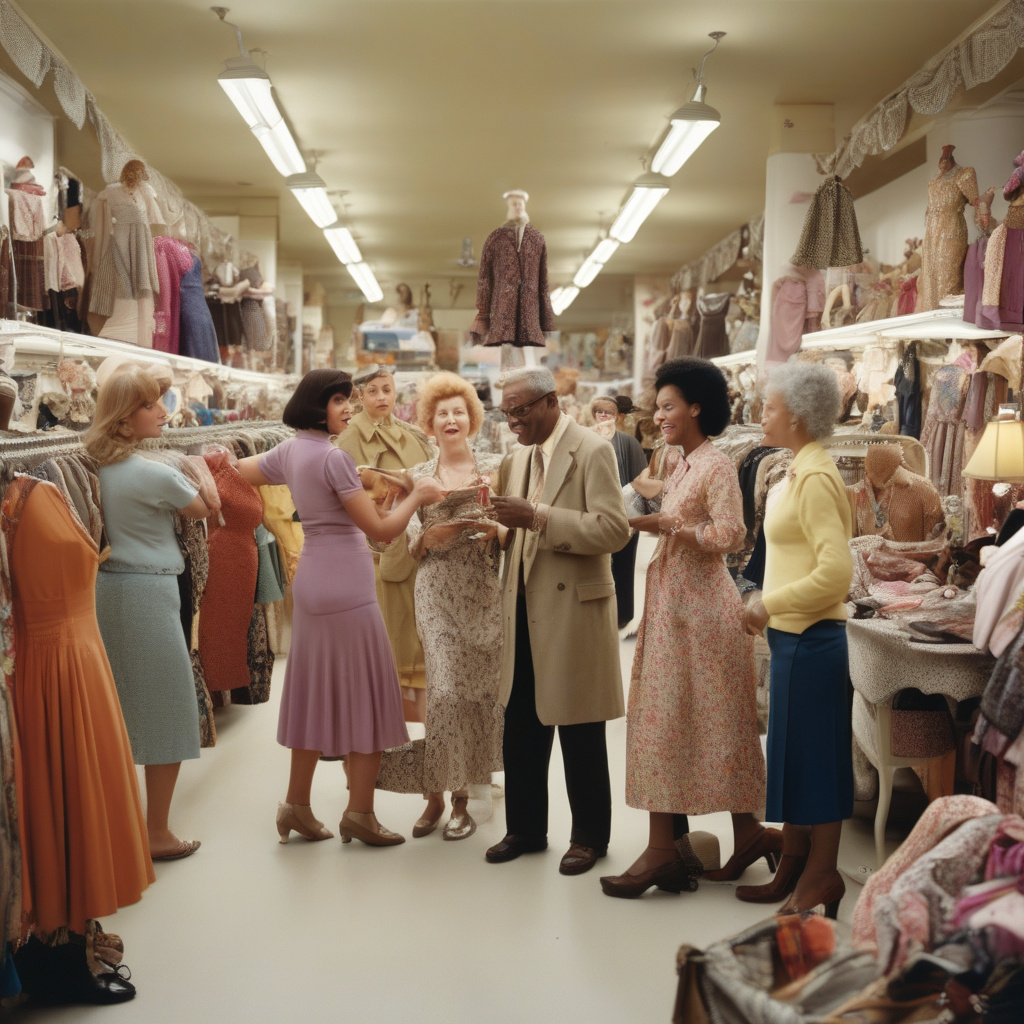Resale Welcomes a Wave of ‘Tariff-ied’ New Customers
The current economic landscape, shaped by tariff-induced uncertainty, has brought about a significant shift in consumer behavior. As the trade tensions continue to escalate, an increasing number of customers are turning towards resale businesses in search of value and quality. This trend has sparked a newfound interest in the second-hand market, prompting a wave of ‘tariff-ied’ new customers to explore the world of pre-owned goods.
Amidst the looming threat of higher prices on imported goods, consumers are becoming more conscious of their purchasing decisions. The uncertainty surrounding tariffs has led many individuals to reevaluate their shopping habits and consider alternative options. This has proven to be a boon for the resale industry, with thrift stores, online resale platforms, and consignment shops experiencing a surge in demand.
One of the key driving factors behind this shift is the appeal of affordability. With tariffs potentially driving up the prices of new goods, consumers are increasingly drawn to the cost-effective nature of resale shopping. By opting for gently used items, customers can secure high-quality products at a fraction of the original price. This focus on value has resonated with a wide range of shoppers, from budget-conscious individuals to eco-conscious consumers looking to reduce waste.
Moreover, the resurgence of interest in resale presents a unique opportunity for businesses to innovate and adapt to changing market dynamics. As the customer base expands and diversifies, there is a growing need for resale platforms to enhance their offerings and provide a seamless shopping experience. From curated collections and personalized recommendations to advanced online marketplaces, there are endless possibilities for resale businesses to differentiate themselves in a competitive market.
In response to this wave of ‘tariff-ied’ customers, many resale companies are leveraging technology to streamline the shopping process and cater to evolving preferences. By implementing AI-driven algorithms, virtual try-on features, and predictive analytics, these businesses can offer a more tailored and engaging shopping experience. This not only enhances customer satisfaction but also sets the stage for long-term growth and sustainability.
Furthermore, the rise of ‘tariff-ied’ customers underscores the importance of sustainability and conscious consumerism in today’s society. By choosing to shop resale, individuals are not only saving money but also contributing to the reduction of waste and the promotion of a circular economy. This shift towards more mindful consumption habits reflects a broader societal trend towards sustainability and ethical shopping practices.
As the resale market continues to attract a diverse range of customers, it is clear that this trend is not merely a passing fad but a fundamental reshaping of the retail landscape. By embracing innovation and meeting the needs of ‘tariff-ied’ consumers, resale businesses have the opportunity to thrive in an ever-changing economic environment. As we navigate the uncertainties of tariffs and trade wars, one thing is certain – the resilience and adaptability of the resale industry will play a crucial role in shaping the future of retail.
resale, tariff-ied, innovation, sustainability, consciousconsumerism










